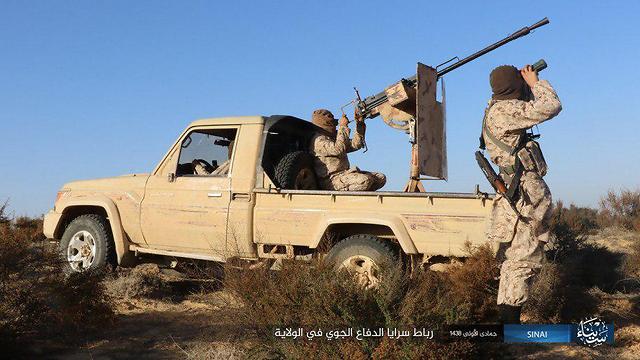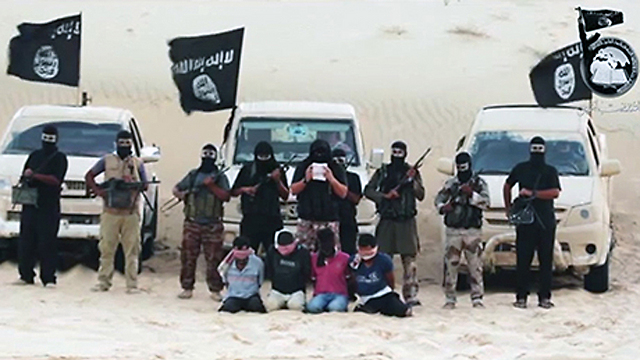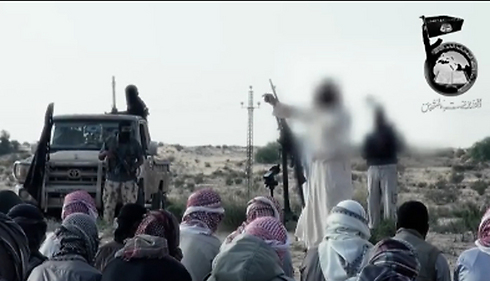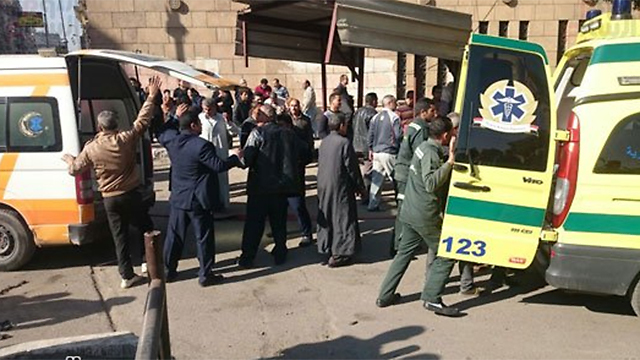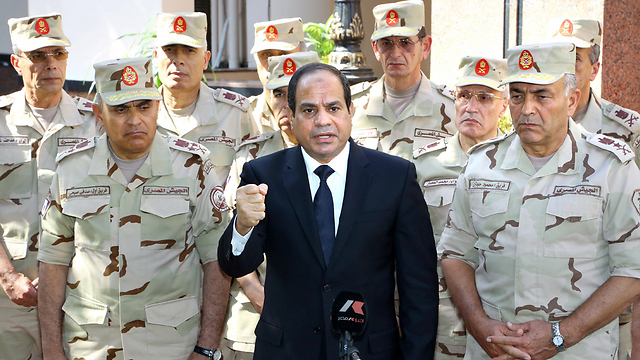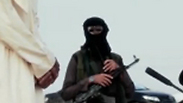
A recent show-of-strength campaign by ISIS loyalists in northern Sinai comes on the heels of a recent easing of the military campaign against them and represents a move to reassert their control over the local civilian population, according to residents, tribal leaders and officials.
In the past three days, ISIS militants in Egypt's volatile northern Sinai region abducted four men accused of collaborating with the government, three of them during a brazen raid in the middle of a public market.
Two of the men have been found slain while the others remain missing; Egyptian officials say that one of the slain men had his eyes plucked out and was set on fire before being shot to death.
Women are being threatened with punishment if they don't wear the niqab and farmers are being forced to pay financial tribute to ISIS under the guise of the "zakat" mandatory Islamic donation to charity.
The militants have set up their own checkpoints especially on the roads around the city of Rafah, which borders the Gaza Strip. Passengers are forced to recite from the Quran before being allowed to pass, according to area residents and tribal leaders.
This recent show-of-strength campaign by ISIS loyalists in northern Sinai comes on the heels of a recent easing of the military campaign against them and represents a move to reassert their control over the local civilian population, according to residents, tribal leaders and officials.
"The messages the militants are sending are terrifying," said a prominent tribal leader. "The numbers of militants is not that big ... But the army campaign stopped and the militants returned."
The violence poses a fresh challenge to President Abdel-Fattah el-Sissi's government to put down an ISIS-led insurgency in northern Sinai and prevent spillover that at times has reached the Egyptian mainland.
The extremists have repeatedly targeted Christian residents, causing more than 100 Christian families to flee from the city of el-Arish.
ISIS militants in northern Sinai recently vowed in a video message to step up a wave of attacks on the embattled Christian minority, a threat that highlights a possible shift in tactics—targeting vulnerable and less-defended civilians instead of the usual police and military targets.
A devastating ISIS-claimed bombing at a Cairo church in December killed nearly 30 people.
The northern part of the Sinai Peninsula, bordering the Gaza Strip and Israel, has been a battleground since 2011, when the region sank into lawlessness after the 18-day uprising that led to the ouster of longtime autocratic President Hosni Mubarak.
But the militant campaign accelerated after the military overthrew elected Islamist President Mohammed Morsi in 2013.
El-Sissi, who as defense minister led Morsi's ouster, declared a state of emergency in northern Sinai in 2014.
Several instances of rocket fire at Israel have occured and the militant group has accused Israel of using drones to kill several of its fighters.
Hundreds of soldiers and police officers have been killed in the conflict and hundreds of houses along the Gaza border have been razed in order to stop the smuggling trade through cross-border tunnels, which has led trade and cooperation between Hamas and ISIS.
According to a second tribal leader, the militants are now raising cash by imposing taxes on the people running the smuggling tunnels.
ISIS militants "are living at large in Rafah," he said.
In a statement, El-Sissi said Egypt is determined to "eliminate the terrorist elements in North Sinai and eradicate terrorism," describing the targeting of citizens as "a cowardly act and evil plan to shake confidence in the state and undermine national unity."













